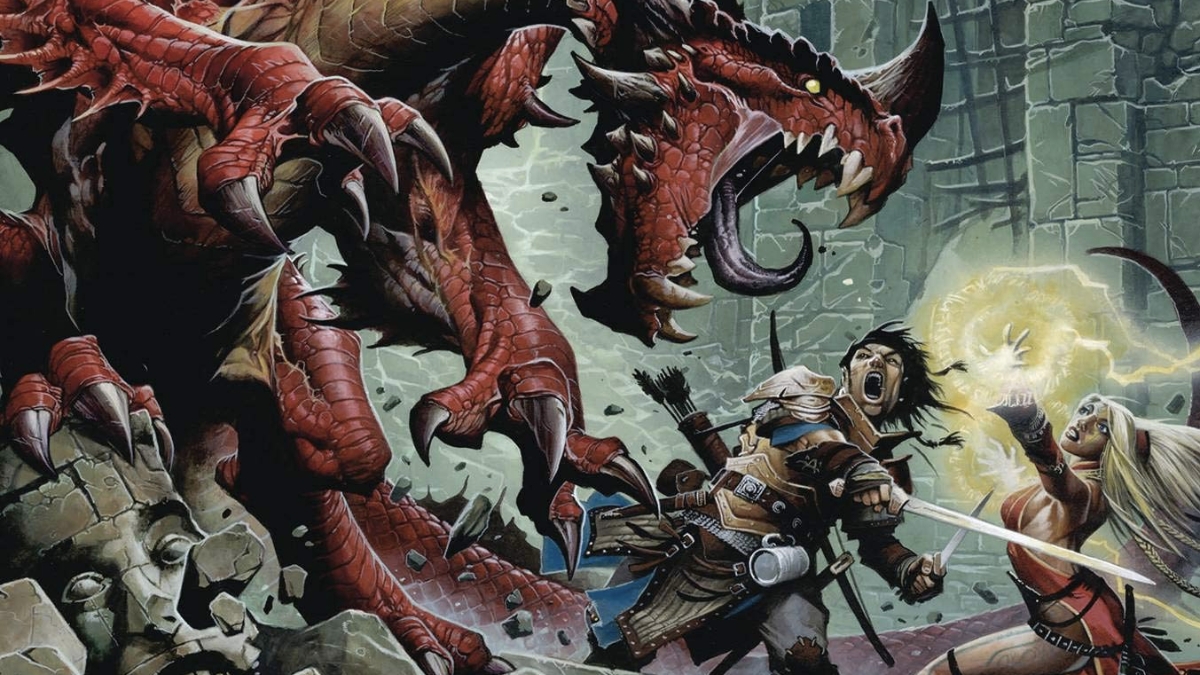‘The World’s Greatest Roleplaying Game’? These Publishers Are Leading the Pivot Away From D&D

Earlier this month, the full text of Wizards of the Coast’s new Open Game License (OGL) was leaked to io9, and community backlash has been swift and brutal. On January 13, Wizards released a statement about rolling back some of the most criticized changes to the original OGL that was released in 2000, but it’s possible that the damage has been done for good.
In fact, two publishers are leading a strong pivot away from Dungeons & Dragons altogether.
Kobold Press, one of the largest publishers of third-party D&D-compatible content under OGL 1.0a, announced on January 10 that it will work on a new Core Fantasy tabletop ruleset: available, open, and subscription-free for those who love it—Code Name: Project Black Flag.” Although it still plans to released announced Kickstarter projects as-is, utilizing the OGL, future releases will be based on this new ruleset and have nothing to do with D&D.
Related: Most Played Games in 2022, Ranked by Average Monthly Players on Twinfinite
Paizo Publishing, who released Pathfinder 1st Edition in 2009 as an extension of the System Resource Document (SRD) for the OGL, then released a 2nd edition in 2019 that’s compatible with all versions of Dungeons & Dragons including 5e, has gone a step further. The day before Wizards announced its plans to delay the new OGL, Paizo president Jim Butler announced a new, system-neutral creative license for third-party developers which it says will be “open, perpetual, and irrevocable.”
This new license will be called the Open RPG Creative License (ORC), and it is a direct response to Wizards developing a new OGL. And although Paizo has offered to pay for the legal work to create this license, it won’t own it. In fact, no TTRPG company will. Azora Law, which was co-founded by Brian Lewis—the same attorney who helped Wizards of the Coast develop the legal framework for the first OGL—will “provide a safe harbor against any company being bought, sold, or changing management in the future and attempting to rescind rights or nullify sections of the license.”
In the future, Paizo hopes to establish a non-profit to hold the final edition of ORC.
As D&D community members are canceling their subscriptions en masse to the Wizards-owned virtual tabletop D&D Beyond and continuing to comment on the company’s botched attempts at earning a profit off the backs of third-party creators, Kobold Press and Paizo Publishing are also turning away from “the World’s Greatest Roleplaying Game.” Whatever Wizards does next, it may not be able to regain favor with its vast community—especially as third-party creators start producing work under ORC.
(featured image: Paizo Publishing)
Want more stories like this? Become a subscriber and support the site!
—The Mary Sue has a strict comment policy that forbids, but is not limited to, personal insults toward anyone, hate speech, and trolling.—
Have a tip we should know? tips@themarysue.com